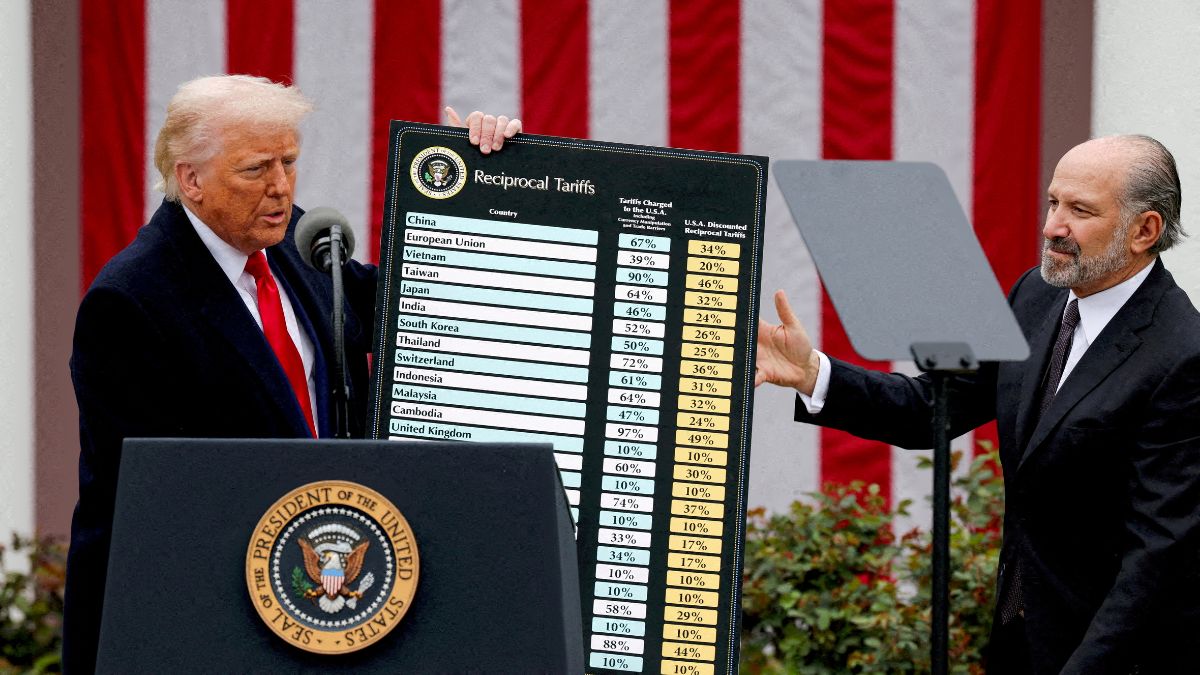August kicks off with major developments across India and the world.
The United States’ deadline to avoid substantial tariffs will reach its deadline today.
Air India cautiously resumes international flights after June’s fatal crash, and astronaut Shubhanshu Shukla will brief on his Axiom Mission 4 return.
India’s UPI rules tighten today, and Punjab launches the nation’s first anti‑drug school curriculum.
Meanwhile, American consumers kick off boycotts of Walmart and McDonald’s.
US tariff deadline passes, 25% duty on India
Starting today, the United States will implement a 25 per cent tariff on Indian imports, as confirmed by US President Donald Trump.
The move comes after months of stalled trade negotiations, particularly over issues such as market access for US agricultural products like corn, wheat, rice, and GM soybeans — sectors India has previously resisted opening due to domestic farmer concerns.
US Commerce Secretary Howard Lutnick underlined that August 1 is a firm deadline with no extensions, dismissing any last‑minute reprieve for India.
Trump also flagged an additional unspecified penalty linked to India’s ongoing Russian energy and defence purchases, citing them as “ALL THINGS NOT GOOD”.
India’s exports to the US stand around $87 billion in 2024, covering labour-intensive sectors such as apparel, pharmaceuticals, gemstones and petrochemicals. These sectors now face heightened exposure to reduced competitiveness.
The US trade deficit with India was approximately $45.7 billion, and the imposition threatens earlier bilateral targets to expand trade to $500 billion by 2030.
Air India to partially resume international flights
Following the June 12 crash of AI171 in Ahmedabad, in which 260 lives were lost, Air India initiated a voluntary “safety pause” to inspect its Boeing 787 and 777 fleets.
Investigations revealed fuel-switch malfunctions immediately post‑takeoff.
Starting today, the airline will partially restore its international services with over 525 weekly flights across 63 routes, gradually scaling to full pre‑crash levels by October 1.
Some routes, including Amritsar–London and Bengaluru–Singapore, will continue reduced frequencies through September.
A new Ahmedabad–London route will debut as part of the phased recovery.
Affected passengers are being offered re‑bookings and refunds under the airline’s recovery plan.
Axiom mission 4 post‑mission briefing with astronaut Shukla
Axiom Space has scheduled a press briefing today, featuring the returning Axiom Mission 4 (Ax‑4) crew: Commander Peggy Whitson, Pilot Shubhanshu Shukla (representing India), and Mission Specialists Sławosz Uznański‑Wiśniewski and Tibor Kapu.
Shukla, now designated as Astronaut No. 634 by NASA, flew aboard the SpaceX Dragon “Grace” and docked with the ISS on June 26, following multiple launch delays.
The crew spent 2 weeks conducting over 60 experiments, including microgravity and human health research.
The mission marks India’s reentry into human spaceflight nearly 40 years after Rakesh Sharma.
The briefing is expected to cover key scientific outcomes, insights from Shukla’s experience, and the broader significance of private‑sector space cooperation.
NPCI’s UPI reforms take effect
The National Payments Corporation of India (NPCI) will enact a new rulebook for UPI payments from today, aimed at reducing system failures, tampering risk, and peak hour overload.
The reforms come amid record usage: UPI volume reached Rs. 24.04 trillion in June alone. Key changes include:
Maximum 50 daily balance checks per user per UPI app.
Definition of peak hours: 10 am-1 pm and 5 pm-9:30 pm; during these times, balance enquiries and autopay transactions are restricted.
Autopay executive slots limited to non‑peak windows only.
Mandatory balance notifications after each transaction to reduce user queries.
Annual security audits and NPCI certification required for fintech service providers.
There is no change to payment amount caps per transaction; the changes are procedural safeguards rather than monetary limits.
An additional measure being explored: the introduction of optional biometric authentication (fingerprint or face scan) to replace PIN entry, aimed at reducing fraud and improving accessibility — though rollout timelines remain unspecified.
Punjab rolls out India’s first evidence‑based anti‑drug school curriculum
Beginning today, Punjab will introduce the country’s first evidence-based drug prevention curriculum in all government schools across Classes IX to XII.
Developed through collaboration with J‑PAL South Asia, led by Nobel Laureate Prof. Abhijit Banerjee, the initiative aims to reach around 800,000 students across 3,658 schools.
The 27-week curriculum utilises biweekly 35-minute sessions, leveraging documentaries, quizzes, role-plays, and group activities to address peer pressure and dispel drug-related myths.
A pilot in Amritsar and Tarn Taran involving 9,600 students reportedly showed significant improvements in awareness and risk perception.
Over 6,500 teachers have been trained to deliver the programme under the state’s “Yudh Nashian De Virudh” scheme.
US boycotts Walmart & McDonald’s
Starting today, the US-based consumer advocacy group People’s Union USA, led by John Schwarz, will initiate coordinated boycott campaigns targeting Walmart and McDonald’s.
The campaigns protest corporate tax avoidance, stagnant wages, labour policies and rollbacks in DEI commitments.
These actions follow previous boycott efforts against Target earlier this year.
Organisers are urging the public to avoid purchases from these brands — especially on designated “blackout” days — and to prefer local businesses instead.
The boycott is timed to coincide with peak consumer activity, including back-to-school and holiday shopping periods.
Also Watch:
With inputs from agencies


)

)
)
)
)
)
)
)
)



